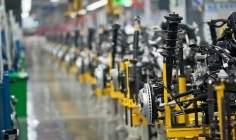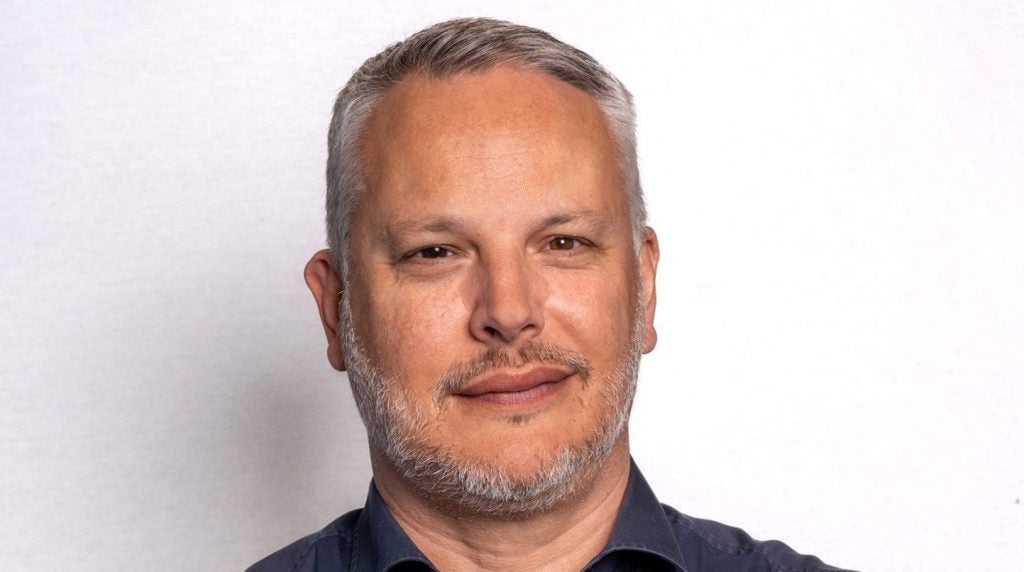
After a tough few years the European manufacturing leasing sector is showing encouraging signs of recovery. Peter Johnstone talked to industry leaders.
The manufacturing sector in Europe is beginning a slow recovery after being hit by cheap overseas competition and the travails of the financial crisis.
Now, with European economies in recovery and a recent trend towards ‘re-shoring’, leasing companies say manufacturers are looking to update and replace old equipment, providing fresh opportunities for business.
Leasing Life spoke to several lessors which all reported growth in the sector, especially in key economies such as the UK and Germany.
Elmar Lukas, managing director of GE Capital Equipment Finance, says the company’s equipment finance volumes "have seen strong growth, year-on-year since 2009 in our key European markets of Germany, France, Italy and the UK", with growth in the manufacturing segment "sitting somewhere between the IT and the office equipment segments", in terms of volume.
Lukas says, according to GE’s Capital Capex Barometer, SMEs in Germany, France, Italy and the UK intend to invest 165.8bn in new manufacturing equipment over the next 12 months.
How well do you really know your competitors?
Access the most comprehensive Company Profiles on the market, powered by GlobalData. Save hours of research. Gain competitive edge.

Thank you!
Your download email will arrive shortly
Not ready to buy yet? Download a free sample
We are confident about the unique quality of our Company Profiles. However, we want you to make the most beneficial decision for your business, so we offer a free sample that you can download by submitting the below form
By GlobalDataMathias Gauger, business development manager for Siemens Financial Services’ (SFS) Commercial Finance business, points out that recent data for growth, in the form of the Eurozone Manufacturing Purchasing Managers’ Index, was slightly positive at 51, a 26-month high.
Gauger says this is indicative of "the green shoots of growth" in several European
economies.
Lukas says the GE research suggests SMEs in the manufacturing sector are "most likely to increase spend to build capacity to service growth in new orders" when compared to other sectors. However, manufacturers are still "among those who are most concerned about the continued uncertain economic environment".
He believes, while companies have postponed investment during the economic crisis when order books were relatively empty, returning confidence and ageing assets will boost demand for new equipment.
Passed the low point
Mark Schröder, international account manager at ABN Amro Lease, also thinks the sector has "passed the lowest point" and companies that have waited to replace equipment will provide an opportunity for the market.
He says a lot of companies have "waited on their replacements in a time of crisis and they need to make those replacements, sooner rather than later.
"I think there will be more investments, starting with the replacements."
Craig Leyland interim managing director at Lombard Business and Commercial, says the UK manufacturing market is "recovering nicely" and showing "solid growth".
While production is "still well below the pre-2007 levels" with a long way to go to, month-on-month growth is "very positive".
He also thinks manufacturers avoided investing during the downturn, so now "assets are being sweated and actually starting to age".
"Just under a fifth of the businesses we spoke to plan to increase their investment this year, but over half of them have decided not to, just because of the current economic environment," Leyland says.
"Ultimately, that has to be holding back their businesses, so it’s almost hand-in-hand."
However confidence is returning to the sector and "as that confidence grows and as we continue to see the growth figures as per the projections, we can support that", and the recovery "should continue".
Carl D’Ammassa, managing director of Hitachi Capital Business Finance, which operates in the UK, says longer life cycles and life cycle management are not really a new development.
Instead lessees "have always looked at the whole life cost of assets when making their purchasing decisions", with "most purchases being made based on long-term strategic business goals, not to try to satisfy short-term opportunism".
While he believes it’s "fair to say ‘value’ becomes more of an issue during economic downturns and the flexibility of assets, product life, maintenance costs, secondary markets and likely resale values make a big difference", he says "any well run business already goes through a stringent thought process before making a capital purchase, irrespective of where we are in the cycle."
Longer lifetime
While many SMEs hold on to ageing equipment because they are hesitant to reinvest, there is also a trend among manufacturers to start using machines with a longer life cycle.
GE Capital Equipment Finance’s Lukas says: "This issue is high on the agenda right now as the sustainability debate becomes more important for manufacturers, end-users and political stakeholders. The aim is to protect the environment by increasing the lifetime and usage of all kinds of equipment."
He says GE already covers "many different life cycles" for manufacturing equipment, at many stages "from when the equipment leaves the production facility of the manufacturer, covering the transport to the distributor, providing leasing to the end-user of the equipment and then re-leasing equipment to potentially two or more future users."
ABN Amro’s Schröder believes the drive for sustainability can be an opportunity for finance companies.
"The finance industry should support this trend; take one step extra, look at taking more responsibility, by working together with the manufacturer, working together with clients. At the end, making sure that everything is recycled, but also supplying financing solutions that fit to that sustainability," he says.
"There are ways of benefiting from it. We can match finance for longer use. We can also think, for example, of secondary rental, supplying finance on a second-hand machine, discussing with manufacturing how we can recycle equipment. It’s all about responsibility there, and taking one step extra."
Lombard’s Leyland thinks there are two questions about extending life cycles: "Is the technology becoming better and therefore it has a longer life-span, or are you seeing businesses delay investment and use their existing equipment because of lack of confidence?"
If the former, he says, manufacturers will not be able to grow. "Manufacturing needs to invest consistently in technology, make the most of the up-to-date equipment to be sure that they are absolutely right at the top of their game. And leasing should support that.
"From what we see, there are definitely more manufacturers over the previous few years that are trying to sweat plant machinery longer.
"You can understand with a lack of confidence in the marketplace why manufacturers are delaying some of their investment decisions, but it is not sustainable to grow our manufacturing business."
Re-shore trend
Another notable recent trend is the manufacturers re-shoring, reversing the previous drift of manufacturers away from the UK and Europe, often to emerging economies. This appears to be due in part to falling costs for European manufacturing, while Schröder says he also sees wages "rising in the emerging markets" where production has been based.
Quality is also important, he believes, and says: "There are more opportunities because of the re-shoring trend. Quality [in the supply chain] is key to building long-lasting relationships and therefore you are seeing the re-shoring trend."
However he does also see more research and development being undertaken in emerging markets, meaning companies there are "climbing up the value chain" and making it a challenge for Western companies "to stay ahead".
Leyland also believes relationships are important and says "businesses are starting to see the value in having that close approximation to the supply chain" instead of "relationships that have been born purely out of costs".
This leads to more re-shoring and opportunities for UK lessors to support a burgeoning domestic supply chain.
He cites UK car manufacturers as a key example, with the development of "an actual supply chain being more predominantly based in the UK than we have previously seen".
"We are starting to see [industry success] come down into the supply chain and give a boost to local manufacturing businesses that we support," Leyland adds.
SFS’s Gauger is less sure of the impact of re-shoring, as he notes that manufacturers in some countries "are developing their own production capability abroad, in countries such as China, thus moving from relatively higher production cost countries to lower cost countries", but these moves can provide opportunities for lessors supporting financing both at home and abroad.
At the same time some companies are moving production away, he adds, others are less hasty, with exchange rate fluctuations playing a role. "If there is a relative weakness of the euro versus other currencies, this can positively impact demand for European produced machine tooling in other geographies".
Manufacturers are also emphasising the need for greener, more energy-efficient machinery in the future.
Leyland says Lombard customers are concerned about energy costs and the company is "working hard with dedicated green energy teams to help manufacturers find cheaper sources of their costs".
At the same time, the UK continues to lag behind Europe in terms of automation, so "the more our businesses can modernise the processes, the more we can help them by funding the equipment to do that."
Gauger supports this, saying that the demand for "energy efficiency and productivity enhancing finance" is key for many manufacturers "where manufacturers are seeking finance for investments that can demonstrate and justify the contribution made to increasing productivity and energy savings."
He cites the implementation of variable speed drives to motors in new equipment, which Siemens calculates could save UK businesses up to £2.5bn (2.95bn) over the next five years. But manufacturers need to access finance to realise such savings.
Increasing confidence
The main task for lessors appears to be increasing confidence in the sector.
"Moving from ‘battened down hatches’ back to growth takes a very different mindset and risk appetite – from both customers and funders", says Hitachi’s D’Ammassa
"Convincing funders that an investment is viable and funders having the confidence to invest when a business’s financial position may well reflect the last few years’ difficult trading is possibly quite a leap of faith."
But there is a quiet confidence, with Gauger and Siemens expecting a gradual recovery in many European countries, and accordingly a return of confidence, which in turn will encourage investment in new manufacturing technology.
Leyland predicts a "steady pace of recovery", as long as there are no "global economic shocks that can’t be foreseen".
D’Ammassa says that the "general credit appetite of funders committed to manufacturing" may be the "main influence" on the industry, but believes that the right level of funding should see it "continue to grow steadily over the coming years".







